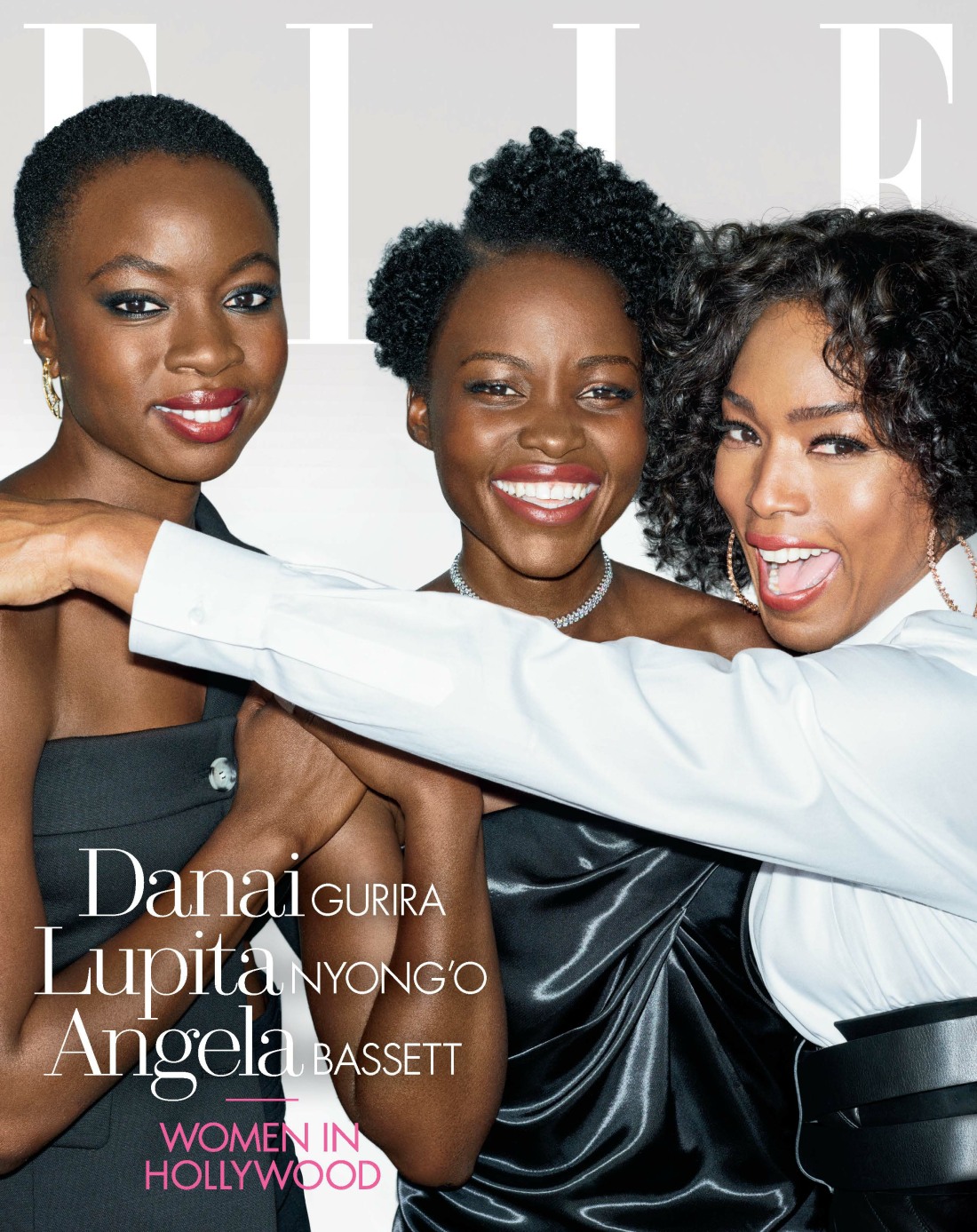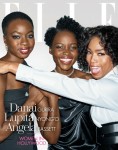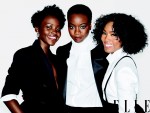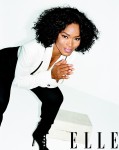Checkout
Top Celebrities
- 50 Cent
- Aaron Carter
- Abigail Clancy
- Academy Awards
- Adam Lambert
- Adam Sandler
- Adnan Ghalib
- Adrian Grenier
- Adriana Lima
- Adrianne Curry
- Adrienne Bailon
- Aida Yespica
- Aisha Tyler
- Aisleyne Horgan-Wallace
- Akon
- Al Gore
- Alaina Alexander
- Alana Curry
- Alec Baldwin
- Aleksandra Jordan
- Alena Seredova
- Alessandra Ambrosio
- Alessia Ventura
- Alex Grace
- Alex Rodriguez
- Ali Larter
- Ali Lohan
- Alicia Keys
- Alina Vacariu
- Allegra Versace
- Alley Bagget
- Alyssa Milano
- Amanda Bynes
- Amanda Harrington
- Amanda Peet
- America Ferrera
- American Idol
- Amy Polumbo
- Amy Winehouse
- Ana Beatriz Barros
- Ana Kournikova
- Anahi Gonzalez
- Andy Dick
- Andy Garcia
- Ang Lee
- Angelina Jolie
- Angie Harmon
- Anna Faris
- Anna Friel
- Anna Kournikova
- Anna Lynne McCord
- Anna Nicole Smith
- Anna Paquin
- Annalynne McCord
- Anne Hathaway
- Anne Heche
- Anthony Hopkins
- Antonella Barba
- Antonio Banderas
- April Scott
- Arnold Schwarzenegger
- Aruna Shields
- Ashanti
- Ashlee Simpson
- Ashley Dupre
- Ashley Greene
- Ashley Olsen
- Ashley Tisdale
- Ashton Kutcher
- Aubrey O'Day
- Audrina Patridge
- Austin Green
- Avril Lavigne
- Bai Ling
- Bam Margera
- Bar Refaeli
- Barack Obama
- Barbra Streisand
- Barron Hilton
- Ben Affleck
- Ben Stein
- Ben Stiller
- Bernie Mac
- Beyonce
- Beyonce Knowles
- Bikini Pictures
- Bill O'Reilly
- Bjork
- Blake Lively
- Bobby Brown
- Bono
- Borat
- Brad Pitt
- Brandon Davis
- Brenda Song
- Bridget Marquardt
- Britney Spears
- Brittany Murphy
- Brittany Snow
- Brody Jenner
- Brook Shields
- Brooke Burke
- Brooke Burns
- Brooke Hogan
- Brooke Shields
- Bruce Willis
- Cameron Diaz
- Camilla Belle
- Candice Michelle
- Caprice Bourett
- Caption Me
- Carmen Electra
- Carrie Prejean
- Carrie Underwood
- Cassie
- Cate Blanchett
- Catherine Zeta-Jones
- Celebrities
- Celebrity Gossip
- Celebrity Pictures
- Celine Dion
- Chad Michael Murray
- Chanelle Hayes
- Charisma Carpetner
- Charlie Sheen
- Charlize Theron
- Cheryl Cole
- Cheryl Tweedy
- Chris Benoit
- Chris Brown
- Chris Tarrant
- Christian Bale
- Christie Binkley
- Christina Aguiera
- Christina Aguilera
- Christina Applegate
- Christina Milian
- Christina Ricci
- Christoper Masterson
- Christopher Walken
- Chuck Nice
- Ciara
- Cindy Crawford
- Cindy Margolis
- Cindy Taylor
- Claudia Schiffer
- Clay Aiken
- Clive Owen
- Coco
- Cory Lidle
- Courteney Cox
- Courtney Cox
- Courtney Love
- Criss Angel
- Cristiano Ronaldo
- Cyndi Lauper
- Dakota Fanning
- Dane Cook
- Dania Ramirez
- Daniel Craig
- Daniel Radcliffe
- Daniel Smith
- Danielle Lloyd
- Danity Kane
- Dannii Minogue
- Danny Boyle
- Dave Navarro
- David Beckham
- David Blaine
- David Faustino
- David Hasselhoff
- David Letterman
- David Spade
- Dean McDermott
- Dean Sheremet
- Debbie Rowe
- Delta Goodrem
- Denise Milani
- Denise Richards
- Dennis Leary
- Diddy
- Dina Lohan
- Diora Baird
- Dita Von Teese
- DJ AM
- DMX
- Don Cheadle
- Don Imus
- Donal Logue
- Donald Trump
- Doug Reinhardt
- Dr Dre
- Drew Barrymore
- Dustin Diamond
- Eddie Murphy
- Edward Norton
- Elin Woods
- Elisha Cuthbert
- Eliza Dushku
- Elizabeth Hurley
- Elle Macpherson
- Ellen Pompeo
- Elton John
- Elyse Umemoto
- Emily Blun
- Emily Osment
- Emily Scott
- Eminem
- Emma B
- Emma Roberts
- Emma Watson
- Emmanuelle Chriqui
- Emmy Rosum
- Erich Schultz
- Erin Wasson
- Eva Green
- Eva Longoria
- Eva Mendes
- Evangeline Lilly
- Fabiana Tambosi
- Farrah Fawcett
- Fat Joe
- Fergie
- Fernanda Tavares
- Flavor of Love
- Foxy Brown
- Freida Pinto
- Gavin Rossdale
- Gemma Atkinson
- George Carlin
- George Clooney
- George Michael
- Gilles Marini
- Gisele Bundchen
- Good Charlotte
- Grey's Anatom
- Guy Ritchie
- Gwen Stefani
- Gwyneth Paltrow
- Hail Gossip Blogs
- Hails Hottie Picks
- Hails Recap
- Haired Pea
- Halle Berry
- Harrison Ford
- Harry Morton
- Harry Potter
- Hayden Panettiere
- Haylie Duff
- Heath Ledger
- Heather Graham
- Heather Locklear
- Heather Mills
- Heidi Klum
- Heidi Montag
- Helena Christensen
- Hilary Duff
- Hilary Swank
- Hillary Clinton
- Holly Madison
- Holly Valance
- Hot Girls
- Hot kiss scene
- Howard K. Stern
- Howard Stern
- Hugh Grant
- Hugh Hefner
- Hugh Jackman
- Hulk Hogan
- Ice Cube
- Iphone
- Irina Shaykhilsamova
- Isaac Cohen
- Isaac Hayes
- Isabel Fontana
- Isaiah Washington
- Ivanka Trump
- Izabel Goulart
- Jack Bauer
- Jack Black
- Jack Nicholson
- Jackie Chan
- Jade
- Jaime Pressly
- Jake Gyllenhaal
- Jakki Degg
- James Blunt
- James Bond
- Jami Miller
- Jamie Foxx
- Jamie Hince
- Jamie Lynn Spears
- Jamie Oliver
- Jamie Pressly
- Jamie-Lynn Sigler
- Jane Fonda
- Jane Olson
- Janet Jackson
- Jaslene Gonzalez
- Jason Filyaw
- Jason Lee
- Jason Lewis
- Jason Mesnick
- Jay-Z
- Jayden
- Jayden James
- Jeff Goldblum
- Jenna Fischer
- Jenna Jameson
- Jennie Garth
- Jennifer Aniston
- Jennifer Ellison
- Jennifer Garner
- Jennifer Hawkins
- Jennifer Hudson
- Jennifer Lopez
- Jennifer Love Hewitt
- Jennifer Morrison
- Jennifer Walcott
- Jenny Frost
- Jenny McCarthy
- Jeremy Piven
- Jermaine Dupri
- Jerry Seinfeld
- Jessica Alba
- Jessica Biel
- Jessica Lowndes
- Jessica Simpson
- Jessica White
- Jessie Jane
- Jewel
- Jim Carey
- Jim Carrey
- Jimmy Fallon
- Joan Rivers
- Joanna Krupa
- Joaquin Phoenix
- Jodie Marsh
- Jodie Sweetin
- Joe Francis
- Joe Jackson
- Joe Simpson
- Joel Madden
- John Cusack
- John Lennon
- John Mayer
- John Ritter
- John Stewart
- John Travolta
- Johnny Depp
- Johnny Fairplay
- Johnson Rocks
- Jojo
- Jolene Blalock
- Jon Gosselin
- Jon Lovitz
- Jonas Brothers
- Jonathan Rhys Meyers
- Jordan
- Jordan Bratman
- Jorge Nunez
- Josh Duhamel
- Josh Hartnett
- Josie Maran
- Joss Stone
- Jude Law
- Julia Roberts
- Julia Stiles
- Julianne Hough
- Juliette Lewis
- Justin Bieber
- Justin Gaston
- Justin Timberlake
- Juveline
- Kaiane Aldorino
- Kaley Cuoco
- Kanye West
- Kardashian
- Kari Ann Peniche
- Karina Smirnoff
- Karolina Kurkova
- Kate Beckinsale
- Kate Bosworth
- Kate Gosselin
- Kate Hudson
- Kate Moss
- Kate Winslet
- Katharine Mcphee
- Katherine Heigl
- Katherine McPhee
- Kathy Hilton
- Katie Downes
- Katie Holmes
- Katie Lohmann
- Katie Price
- Katie Rees
- Katy Perry
- Ke$ha
- Keanu Reeves
- Keeley Hazell
- Keira Knightley
- Keisha Buchanan
- Keith Richards
- Keith Urban
- Kelly Bensimon
- Kelly Brook
- Kelly Clarkson
- Kelly Osbourne
- Kelly Pickler
- Kelly Ripa
- Kelly Rutherford
- Kendra Jade
- Kendra Wilkinson
- Keri Russell
- Kerri Kasem
- Kevin Costner
- Kevin Federline
- Khloe Kardashian
- Kiefer Sutherland
- Kim Kardashian
- Kimberly Stewart
- Kimora Lee Simmons
- Kingston
- Kirsten Dunst
- Kobe Bryant
- Kourtney Kardashian
- Kristanna Loken
- Kristen Bell
- Kristen Dalton
- Kristen Stewart
- Kristin Cavallari
- Kristin Davis
- Kristy Swanson
- Kurt Cobain
- Kylie Minogue
- L.L. Cool J
- Lacey Chabert
- Lady GaGa
- Lance Bass
- Larry Birkhead
- Larry King
- Larry Rudolph
- Laura Prepon
- Lauren Conrad
- Lauren Hutton
- Lauren Nelson
- Laurence Fishburne
- Leann Rimes
- Lee Ann Rimes
- Leelee Sobieski
- Leighton Meester
- Leo DiCaprio
- Leona Lewis
- Leonardo DiCaprio
- Leticia Cline
- Lil Wayne
- Lilly Allen
- Lily Allen
- Lindsay Lohan
- Lindsey Vonn
- Lionel Richie
- Lisa Gleave
- Lisa Loeb
- Lisa Marie Scott
- Lisa Ray
- Lisa Rhinna
- Lisa Snowdon
- Liv Tyler
- Lori Loughlin
- Louise Redknapp
- Lucie Silvas
- Lucy Liu
- Lucy Pinder
- Luke Wilson
- Maddox
- Madonna
- Maggie Gyllenhaal
- Mandy Moore
- Marcia Cross
- Maria Menounos
- Maria Sergeyeva
- Mariah Carey
- Mario Lopez
- Marisa Miller
- Marisa Tomei
- Mark Wahlberg
- Mary J. Blige
- Mary-Kate Olsen
- Mary-Louise Parker
- Maryse Ouellet
- Matt Damon
- Matt Lauer
- Matthew McConaughey
- Matthew Perry
- May Andersen
- McShane
- Meg Ryan
- Meg White
- Megan Fox
- Meghan McCain
- Mel Gibson
- Melania Knauss
- Melanie Brown
- Mena Suvari
- Michael Douglas
- Michael Jackson
- Michael Moore
- Michelle Marsh
- Michelle McCool
- Michelle Obama
- Michelle Rodriguez
- Michelle Trachtenberg
- Michelle Williams
- Mick Jagger
- Mike Tyson
- Mila Kunis
- Miley Cyrus
- Milo Ventimiglia
- Minka Kelly
- Miranda Kerr
- Mischa Barton
- Miss Nevada
- Miss Universe 2010
- Moby
- Monica Bellucci
- Morgan Freeman
- Movies
- Myleene Klass
- Nadine Velasquez
- Nadya Suleman
- Naomi Campbe
- Naomi Watts
- Nas
- Natalie Maines
- Natalie Portman
- Natasha Bedingfield
- Natasha Henstridge
- Natasha Richardson
- Neha Dhupia
- new gossips
- new movie
- New York Yankees
- Nick Carter
- Nick Jonas
- Nick Lachey
- Nicky Hilton
- Nicolas Cage
- Nicole Eggert
- Nicole Kidman
- Nicole Richie
- Nicole Scherzinger
- Nicolette Sheridan
- Nikki Ziering
- Nipple Slip
- Notorious B.I.G.
- Octomom
- Odette Yustman
- OJ Simpson
- Olga Kurylenko
- olivi
- Olivia Mojica
- Olivia Munn
- Olivia Newton John
- Olivia Wilde
- Oprah
- Orlando Bloom
- Orlando Brown
- Oscar de la Hoya
- Oscars
- Owen Wilson
- Pamela Anderson
- Paris Hilton
- Patricia Arquette
- Patrick Dempsey
- Patrick McDermott
- Patrick Swayze
- Paul Oakenfold
- Paul Rudd
- Paul Walker
- Paula Abdul
- Penelope Cruz
- Perez Hilton
- Pete Doherty
- Pete Wentz
- Peter Andre
- Peter Facinelli
- Peter Greene
- Petra Nemcova
- Phil Collins
- Phoebe Price
- Pink
- Piper Perabo
- Polls
- Primetime Emmys
- Prince Harry
- Princess Beatrice
- Queen Elizabeth
- Queen Latifah
- R. Kelly
- Rachael Ray
- Rachel Bilson
- Rachel Hunter
- Rachel Stevens
- Rachel Uchitel
- Rachelle Lefevre
- Randy Quaid
- Ray J
- Reese Witherspoon
- Renee Olstead
- Renee Zellweger
- Richard Lugner
- Richie Sambora
- Ricky Gervais
- Rihanna
- Rima Fakih
- Rob Schneider
- Robbie Williams
- Robert Pattinson
- Ron Jeremy
- Rosario Dawson
- Rosie Huntington
- Rosie Odonnell
- Roxanne Pallet
- Rumer Willis
- Russell Brand
- Russell Crowe
- Ryan Phillippe
- Ryan Seacres
- Sacha Baron Cohen
- Sadie Frost
- Salma Hayek
- Samantha Ronson
- Samia Smith
- Samuel L. Jackson
- Sandee Westgate
- Sandra Bullock
- Sanjaya
- Sara Foster
- Sarah Harding
- Sarah Jessica Parker
- Sarah Michelle Gellar
- Sarah Shahi
- Sarah Silverman
- Scarlett Johansson
- Scientology
- Sean Penn
- Sean Preston
- Selena Gomez
- Selita Ebanks
- Selma Blair
- sex tape
- Shakira
- Shana Prevette
- Shanna Moakler
- Shaquille O'Neal
- Sharon Stone
- Shauna Sands
- Shawn Johnson
- Shenae Grimes
- Sheryl Crow
- Shia LaBeouf
- Shiloh Nouvel Pitt
- Shyamali Malakar
- Sienna Miller
- Simon Cowell
- Sin City
- Sofia Vergara
- Sonam Kapoor
- Sophie Monk
- South Park
- Stacy Dash
- Stacy Keibler
- Star Jones
- Stavros Niarchos
- Steve Irwin
- Steve O
- Steven Spielberg
- Suge Knight
- Sunny Leone
- Suri Cruise
- Susan Boyle
- Sutton Pierce Federline
- Sylvester Stallone
- T.I.
- Tailor Made
- Tania Zaetta
- Tara Conner
- Tara Elizabeth Conner
- Tara Elizabeth Connor
- Tara Reid
- Tatu
- Taylor Lautner
- Taylor Momsen
- Taylor Swift
- Team Bill
- Ted Hughes
- Tera Patrick
- Teresa Palmer
- Teri Harrison
- Teri Hatcher
- The Dark Knight
- The Game
- The Morning Quicky
- Tiffany Taylor
- Tiger Woods
- Tila Tequila
- Tobey Maguire
- Tom Arnold
- Tom Brady
- Tom Cruise
- Tom Hanks
- Tommy Lee Jones
- Tony parker
- Tori Spelling
- Travis Barker
- Tricia Helfer
- Tyler Perry
- Tyra Banks
- Uffie
- Uma Thurman
- Usher
- Vanessa Hudgens
- Vanessa Marcil
- Vanessa Minnillo
- Victoria Beckham
- Victoria Justice
- Victoria Silvstedt
- Vida Guerra
- Vin Diesel
- Vince Vaughn
- Virginia Tech
- Website News
- Weird Al
- Wesley Snipes
- Whitney Houston
- whitney Port
- Whoopi Goldberg
- Will Ferrell
- Willem Defoe
- Wilmer Valderrama
- Winona Ryder
- Woody Harrelson
- Woody Harrison
- Yesica Toscanni
- YouTube
- Yukie Kawamura
- Zac Efron
- Zachery Ty Bryan
- Zooey Deschane
The women of ‘Black Panther’ cover Elle, talk about their ‘unapologetically black’ film
Author: | Filed under: Celebrities
Elle Magazine’s November issue is their annual Women In Hollywood issue, which means multiple covers and multiple cover stories. Interestingly, three of the women from Black Panther are one of the covers: Lupita Nyong’o, Angela Bassett and Danai Gurira. Black Panther came out months ago, so why are they still promoting it? I’ll give you a hint: magazines usually devote their November and December covers to Oscar hopefuls. That’s right, the cast of Black Panther truly believes that their film should be a Best Picture contender. And they’re not wrong either. It *should* be a contender. But will it be? I don’t know. You can see Elle’s cover package for these ladies here. Some highlights:
Angela Bassett on the importance of women in Black Panther: “The women were integral to the storytelling and the wisdom that the main character possessed. It was really important in terms of the representation of black feminine strength.”
Angela Bassett on the impact of Black Panther: “We all felt the anticipation but had no idea how it would mushroom, or that it would be so global and smash whatever preconceived notions we’ve heard for decades—that stories like this about these people won’t travel as well or won’t generate financially on such a huge scale.”
Lupita Nyong’o on relating to her character, Nakia: “Nakia was a departure from the character you see in the comic books. She is an independent woman and a bit of a rebel but also a loyalist to her country. I am also someone who depends on my family and friends and feels a connection to my people, and maybe has a sense of responsibility to make them proud. So I really related to that balancing act within oneself.”
Danai Gurira on Wakanda as a society: “[It] was celebratory of everyone equally [regardless of gender]. You see that in my character. She’s able to excel.”
Lupita on how women get to save the day: “In our story, the emphasis is on many different women holding their own space,” says Nyong’o, describing the film as “a Marvel universe that is unapologetically black.”
[From Elle]
I remember, years ago, reading an explanation for why the phrase “unapologetically black” needs to be retired, and it’s interesting to see Lupita use it here. The explanation was basically that by saying anyone or anything is “unapologetically” black, there’s the implicit assumption that blackness is something for which an apology is normally needed. I know that’s not how Lupita is using it, but still. As for the importance of the women’s stories within Black Panther… I agree for the most part, although I do think that the women were used too much “in service” of the male characters, but that’s more of a superhero-film problem rather than a Black Panther-specific problem.
Photos courtesy of Katja Rahlwes for Elle Magazine, sent from promotional Elle email.


Leave a reply